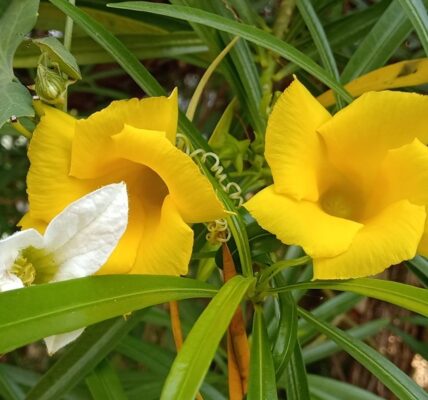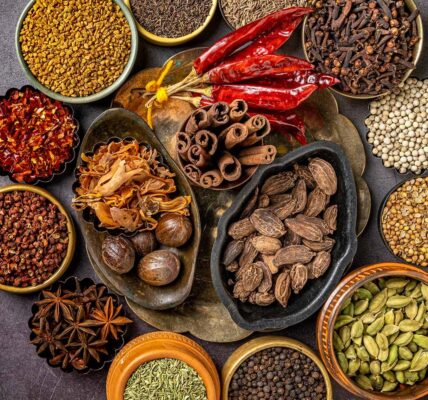Holistic Approaches: Herbal Remedies for Hemorrhoids Relief
Hemorrhoids, commonly known as piles, can bring about discomfort and pain for many individuals. As various factors contribute to their development, integrating medicinal herbs into one’s wellness routine can provide relief and support in managing this condition. This article delves into a range of herbs well-regarded for their effectiveness in treating piles, addressing symptoms, and promoting rectal health. From the vascular strength of Aesculus hippocastanum to the anti-inflammatory properties of Bergenia ciliata, each herb plays a distinctive role in easing the challenges faced in hemorrhoids relief. Let’s explore the therapeutic properties of these natural remedies and their potential to bring comfort and healing to those dealing with piles.

- Aesculus hippocastanum (Horse Chestnut):
- Strengthens blood vessels, reducing inflammation and addressing the root causes of piles.
- Exhibits anti-inflammatory and antioxidant properties, contributing to improved vascular health.
- Horse chestnut, commonly used in European traditional medicine, is recognized for potential benefits in circulatory and vascular health.
- Allium cepa (Onion):
- Onion’s anti-inflammatory and antioxidant compounds alleviate symptoms of piles.
- May have antimicrobial properties that support overall digestive health.
- Onion, known as “Palandu” in Sanskrit, is recognized in Ayurveda for its pungent taste and heating potency, with properties that stimulate digestion and enhance the digestive fire (Agni).
- Bergenia ciliata:
- Astringent properties reduce bleeding associated with piles, offering relief from pain.
- Exhibits anti-inflammatory effects, providing additional comfort.
- In the Ayurvedic system of medicine, it goes by the name Pashanabheda (stone breaker), in the Unani system, it is recognized as “Zakhm-e-hayat” (wound healer), and in India, it is commonly referred to as “Pathar phor buti” (Herb that breaks stone).
- Bergenia ligulata:
- Anti-hemorrhoidal and anti-inflammatory properties contribute to effective piles treatment.
- May have a mild laxative effect, aiding smoother bowel movements.
- In the Ayurvedic system of medicine, this herb is also considered Pashanabheda, or ‘stone breaker.
- Bergenia stracheyi:
- Anti-inflammatory and wound-healing properties promote rectal health.
- Soothing effects on the digestive tract, offering comprehensive hemorrhoids relief.
- Bergenia stracheyi, commonly known as Himalayan Bergenia, is a species of flowering plant found at altitudes ranging from 9,000 to 13,000 feet in the Himalayan region.
- Brassica rapa (Turnip):
- Turnip’s fiber content promotes regular bowel movements, reducing the strain on the rectum.
- Provides essential nutrients for digestive health.
- Ficus carica (Fig):
- High fiber content aids in softening stools, easing bowel movements, and reducing discomfort.
- Antioxidant properties contribute to overall digestive well-being.
- Hamamelis virginiana (Witch Hazel):
- Astringent properties reduce swelling and provide relief from irritation associated with piles.
- Exhibits anti-inflammatory effects.
- Mangifera indica (Mango):
- Mango’s fiber-rich content supports digestive health, preventing and easing constipation.
- Provides vitamins and antioxidants.

Mangifera indica (Mango) – Herbal Aids for Hemorrhoids Relief
- Momordica charantia (Bitter Melon):
- Anti-inflammatory and antioxidant properties may reduce inflammation and discomfort.
- Supports overall digestive health, offering comprehensive hemorrhoids relief.
- Oryza sativa (Rice):
- Regulates bowel movements, preventing constipation, a key factor in hemorrhoids relief.
- Provides energy and is easy on the digestive system.
- Ruscus aculeatus:
- Supports venous circulation, reducing the likelihood of developing piles.
- Anti-inflammatory properties provide relief from pain and swelling.
- Raphanus sativus (Radish):
- Radish’s fiber content aids in digestion, preventing constipation and reducing the risk of piles.
- Exhibits anti-inflammatory properties.
- Sesamum indicum (Sesame):
- Sesame seeds, rich in fiber, support healthy digestion and prevent constipation.
- Provide essential nutrients and antioxidants.
- Syzygium cumini (Jamun):
- Astringent properties may reduce bleeding associated with piles.
- Anti-inflammatory effects and support for overall digestive function, offering comprehensive hemorrhoids relief.
- Triticum aestivum (Wheatgrass):
- Rich in fiber and chlorophyll, promotes regular bowel movements and reduces the risk of constipation.
- Provides comprehensive nutritional benefits.
- Terminalia chebula (Haritaki):
- Mild laxative effect aids in preventing and easing constipation, supporting digestive health.
- Exhibits anti-inflammatory properties.
- Terminalia chebula, known as Haritaki in Ayurveda, is a revered herb celebrated for its tridoshic balancing properties, promoting digestive health, detoxification, and longevity.
- As a key component of Triphala, it holds a central role in traditional Ayurvedic formulations for overall well-being.
- Vaccinium myrtillus (Bilberry):
- Antioxidant properties may help strengthen blood vessels, reducing the likelihood of developing piles.
- Supports overall circulatory health.
- Verbascum thapus L. (Mullein):
- Anti-inflammatory properties may alleviate discomfort associated with piles.
- Soothing effects on the digestive tract.
- Zingiber officinale (Ginger):
- Anti-inflammatory and digestive properties provide relief from piles symptoms.
- Supports overall digestive health and immune function.
- Zingiber officinale, or Ginger, is a cornerstone in Ayurveda, celebrated for kindling digestive fire (Agni) and offering potent anti-inflammatory support, making it a versatile herb for digestive health.
- As a key component of Trikatu, it exhibits bio-enhancing properties, enhancing the efficacy of herbs and formulations for comprehensive well-being.
In the realm of herbal remedies, nature unfolds a treasure trove of solutions for various health concerns, and piles are no exception. The herbs discussed here, from the humble onion to the potent witch hazel, showcase diverse properties that collectively contribute to hemorrhoids relief. As individuals seek alternatives to conventional treatments, embracing the holistic approach of herbal remedies offers a promising avenue. While these herbs present potential benefits, it’s essential to consult with healthcare professionals for personalized guidance. By integrating these herbs into a well-rounded lifestyle, individuals can take proactive steps towards managing piles, promoting digestive health, and fostering overall well-being.
Source of Herbal Aids for Hemorrhoids Relief:
- Literary:
- Chauhan, Rajani & SAINI, RUBY & Dwivedi, Jaya. (2012). Golden Herbs used in Piles Treatment: A Concise Report. International Journal of Drug Development and Research. 4. 50-68.
- Hashempur, Mohammad Hashem et al. “An Evidence-Based Study on Medicinal Plants for Hemorrhoids in Medieval Persia.” Journal of evidence-based complementary & alternative medicine vol. 22,4 (2017): 969-981. doi:10.1177/2156587216688597
- Kacholi DS, Mvungi Amir H. Herbal remedies used by traditional healers to treat haemorrhoids in Tabora region, Tanzania. Pharm Biol. 2022;60(1):2182-2188. doi:10.1080/13880209.2022.2136204
- Images: Image-1 by macrovector on Freepik, Image-2 by ⓒAshwani Kumar





